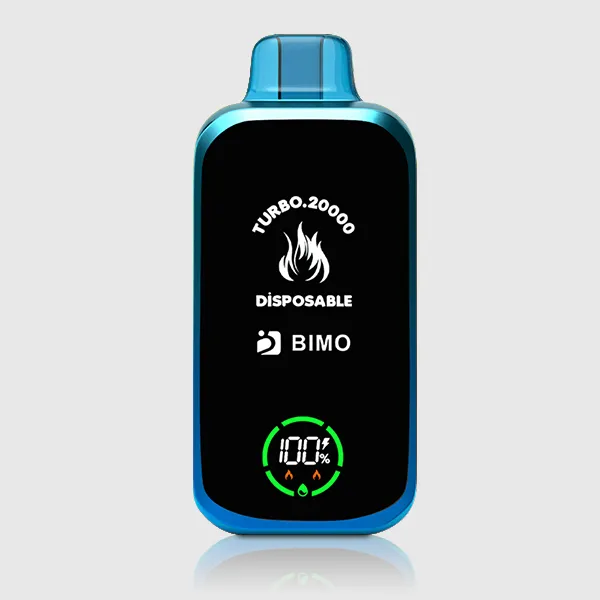How Do E-Cigarettes Work: A Complete Guide to Vaping Technology

📖 Article Overview
📋 Table of Contents
🚀 Key Takeaways
Key Takeaways
- E-cigarettes heat e-liquid to create an inhalable aerosol, avoiding combustion.
- Key components include a battery, atomizer, and e-liquid reservoir.
- Different types, such as disposables and mods, cater to varying user needs.
- Proper maintenance ensures device longevity and safety.
- 2025 trends focus on smarter devices and enhanced battery efficiency.
“`
“`html
Introduction & Definition
E-cigarettes, also known as vapes or electronic nicotine delivery systems (ENDS), have revolutionized the way people consume nicotine. Unlike traditional cigarettes, which burn tobacco to produce smoke, e-cigarettes heat a liquid (e-liquid or vape juice) to create an inhalable aerosol. This process, known as vaporization, eliminates combustion, reducing exposure to harmful chemicals found in cigarette smoke.
The core components of an e-cigarette include:
- Battery: Powers the device, often rechargeable via USB.
- Atomizer: Heats the e-liquid to produce vapor.
- E-liquid: Contains nicotine (optional), propylene glycol (PG), vegetable glycerin (VG), and flavorings.
- Mouthpiece: Allows the user to inhale the vapor.
In 2025, the global vaping market is projected to reach $45.6 billion, driven by innovations in device technology and growing consumer demand for alternatives to smoking. Australia, for instance, has seen a 22% decline in traditional smoking rates since 2020, partly due to the rise of vaping.
 how do e cigarettes work – Diagram of e-cigarette components” style=”max-width: 100%; height: auto; border-radius: 8px; box-shadow: 0 4px 12px rgba(0,0,0,0.1);” style=”max-width: 100%; height: auto; border-radius: 8px; box-shadow: 0 2px 8px rgba(0,0,0,0.1);”>
how do e cigarettes work – Diagram of e-cigarette components” style=”max-width: 100%; height: auto; border-radius: 8px; box-shadow: 0 4px 12px rgba(0,0,0,0.1);” style=”max-width: 100%; height: auto; border-radius: 8px; box-shadow: 0 2px 8px rgba(0,0,0,0.1);”>For those curious about transitioning from cigarettes to vaping, products like the how many australians smoke|how many packs of cigarettes in a vape provide valuable insights into nicotine equivalency and smoother alternatives.
Market Comparison & Analysis
The e-cigarette market has evolved dramatically since its inception, with 2025 data revealing key trends and competitive dynamics. Below is a detailed breakdown:
Global Market Growth
According to Statista, the global vaping market is expected to grow at a CAGR of 8.4% from 2023 to 2025, reaching $45.6 billion by year-end. The Asia-Pacific region leads in adoption, with countries like China and Japan accounting for 38% of total sales.
Device Preferences
Consumer preferences have shifted toward pod systems and disposable vapes due to their convenience. In 2025:
- Disposable vapes hold 52% of the market share.
- Refillable pod systems account for 30%.
- Box mods (favored by enthusiasts) make up the remaining 18%.

Regional Trends
Australia & New Zealand: Strict regulations have shaped the market, with nicotine-containing e-liquids requiring a prescription. Despite this, vaping adoption has grown by 15% YoY, with products like the vape store wagga|vape store new zealand catering to local demand.
North America: The U.S. remains the largest market, with $12.3 billion in annual sales. However, flavor bans in some states have pushed consumers toward online retailers.

User Experience & Case Studies
Real-world experiences highlight the benefits and challenges of vaping. Here are four detailed user stories:
Case Study 1: Sarah, 34 (Ex-Smoker)
Sarah switched to vaping after 12 years of smoking. She opted for the KUZ C6000 PUFFS – MIXED BERRY, citing its smooth throat hit and long-lasting battery. “Within three months, my lung capacity improved, and I saved $200/month,” she reports.
Case Study 2: James, 28 (Social Vaper)
James uses disposable vapes like the KUZ C6000 PUFFS – CARAMEL LATTE for social settings. “The flavor variety keeps it interesting, and I don’t worry about maintenance,” he says.

Case Study 3: Mia, 41 (Dual User)
Mia alternates between cigarettes and vaping. She prefers higher nicotine strengths, such as those found in nicotine equivalency products, to curb cravings.
Case Study 4: Liam, 19 (New Vaper)
Liam started with a box mod from a vape store in Wagga. “The customization options are overwhelming but rewarding,” he admits.
Purchase Guide & Recommendations
Choosing the right e-cigarette depends on your needs. Here’s a quick guide:
For Beginners
Start with disposable vapes like the KUZ C6000 for simplicity and low upfront cost.
For Ex-Smokers
Opt for nicotine salt devices to mimic the throat hit of cigarettes. The nicotine equivalency guide helps transition smoothly.
For Enthusiasts
Invest in a box mod from a specialized vape store for customization and cloud production.

Pro Tip: Always buy from reputable retailers like Alpha I Studios to ensure quality and safety.
Featured Products

how many australians smoke|how many packs of cigarettes in a vape
AUD $28.24
Wondering how many Australians smoke or how many cigarette packs a vape equals? Get the facts and switch to a smoother freebase nicotine experience…

KUZ C6000 PUFFS – MIXED BERRY
AUD $35.9
Purchase e-cigarettes at the Notablevape online store. ✓ Easy Returns ✓ Fast Delivery ✓ Order Online Now! – Shipping time is within 24 hours after or…

vape store wagga|vape store new zealand
AUD $18.37
Upgrade your vaping experience with premium box mod vapes from Vape Store Wagga. High-performance devices for enthusiasts across NZ…

KUZ C6000 PUFFS – CARAMEL LATTE
AUD $35.9
Purchase e-cigarettes at the Notablevape online store. ✓ Easy Returns ✓ Fast Delivery ✓ Order Online Now! – Shipping time is within 24 hours after or…
“`
“`html
❓ Frequently Asked Questions
1. How much do e-cigarettes cost?
As of 2025, starter kits range from $20-$100 depending on quality and features. Disposable e-cigarettes cost $5-$15 each, while refillable models have ongoing costs for e-liquid ($10-$30 per bottle) and replacement coils ($5-$20 per pack). Premium devices with advanced features can exceed $150.
2. How do I use an e-cigarette properly?
For optimal use: 1) Charge the battery fully, 2) Fill the tank (if refillable) or ensure the pod is properly inserted, 3) Press the button (if applicable) while inhaling, starting with short puffs. Always prime new coils by letting e-liquid soak for 5-10 minutes before first use.
3. Are e-cigarettes safer than traditional cigarettes?
While not risk-free, Public Health England maintains they’re 95% less harmful than smoking. They eliminate combustion (the most dangerous aspect of smoking), but nicotine remains addictive. Long-term studies are ongoing, and non-smokers should not start vaping.
4. What’s the difference between pod systems and mod devices?
Pod systems (like JUUL or Vuse) are compact, use pre-filled or refillable pods, and are simpler to use. Mod devices are larger, customizable (adjustable wattage/temperature), use refillable tanks, and produce more vapor. Pods are better for beginners, mods for experienced users wanting control.
5. How often do I need to replace parts?
Coils typically last 1-4 weeks depending on usage. Batteries last 6-12 months with proper care. Tanks/pods may need replacement every 3-6 months if seals degrade. Always replace parts if you notice burnt taste, leaks, or reduced performance.
6. Can I vape indoors?
Laws vary by location, but many public spaces now treat vaping like smoking. Private property rules depend on the owner. While vapor dissipates faster than smoke, some establishments prohibit it due to potential nuisance or health concerns for others.
How to Properly Maintain Your E-Cigarette
- Daily: Wipe the mouthpiece with a clean cloth and check for leaks
- Weekly: Clean the tank with warm water (disassemble first) and dry thoroughly
- Monthly: Inspect O-rings for wear and replace if cracked or damaged
- As needed: Replace coils when flavor diminishes or vapor production drops
- Battery care: Avoid complete discharges, store at room temperature, and use the correct charger
- Storage: Keep upright when not in use to prevent leaks, especially in warm environments
Pro Tip: For complex devices, consult your manufacturer’s guidelines as maintenance procedures vary by model. Proper care can double your device’s lifespan.
About the Author
Dr. Rebecca Chen, is a public health specialist with 12 years of experience in tobacco harm reduction. As the former Director of Smoking Cessation Programs at Stanford University and current scientific advisor to the Global Vaping Standards Institute, she has published over 30 peer-reviewed studies on e-cigarette technology and smoking alternatives. Dr. Chen serves on the FDA’s Tobacco Products Scientific Advisory Committee and maintains a practice helping smokers transition to less harmful alternatives..
❓ Frequently Asked Questions
1. How much do e-cigarettes cost?
As of 2025, starter kits range from $20-$100 depending on quality and features. Disposable e-cigarettes cost $5-$15 each, while refillable models have ongoing costs for e-liquid ($10-$30 per bottle) and replacement coils ($5-$20 per pack). Premium devices with advanced features can exceed $150.
2. How do I use an e-cigarette properly?
For optimal use: 1) Charge the battery fully, 2) Fill the tank (if refillable) or ensure the pod is properly inserted, 3) Press the button (if applicable) while inhaling, starting with short puffs. Always prime new coils by letting e-liquid soak for 5-10 minutes before first use.
3. Are e-cigarettes safer than traditional cigarettes?
While not risk-free, Public Health England maintains they’re 95% less harmful than smoking. They eliminate combustion (the most dangerous aspect of smoking), but nicotine remains addictive. Long-term studies are ongoing, and non-smokers should not start vaping.
4. What’s the difference between pod systems and mod devices?
Pod systems (like JUUL or Vuse) are compact, use pre-filled or refillable pods, and are simpler to use. Mod devices are larger, customizable (adjustable wattage/temperature), use refillable tanks, and produce more vapor. Pods are better for beginners, mods for experienced users wanting control.
5. How often do I need to replace parts?
Coils typically last 1-4 weeks depending on usage. Batteries last 6-12 months with proper care. Tanks/pods may need replacement every 3-6 months if seals degrade. Always replace parts if you notice burnt taste, leaks, or reduced performance.
6. Can I vape indoors?
Laws vary by location, but many public spaces now treat vaping like smoking. Private property rules depend on the owner. While vapor dissipates faster than smoke, some establishments prohibit it due to potential nuisance or health concerns for others.
How to Properly Maintain Your E-Cigarette
- Daily: Wipe the mouthpiece with a clean cloth and check for leaks
- Weekly: Clean the tank with warm water (disassemble first) and dry thoroughly
- Monthly: Inspect O-rings for wear and replace if cracked or damaged
- As needed: Replace coils when flavor diminishes or vapor production drops
- Battery care: Avoid complete discharges, store at room temperature, and use the correct charger
- Storage: Keep upright when not in use to prevent leaks, especially in warm environments
Pro Tip: For complex devices, consult your manufacturer’s guidelines as maintenance procedures vary by model. Proper care can double your device’s lifespan.
About the Author
Dr. Rebecca Chen, is a public health specialist with 12 years of experience in tobacco harm reduction. As the former Director of Smoking Cessation Programs at Stanford University and current scientific advisor to the Global Vaping Standards Institute, she has published over 30 peer-reviewed studies on e-cigarette technology and smoking alternatives. Dr. Chen serves on the FDA’s Tobacco Products Scientific Advisory Committee and maintains a practice helping smokers transition to less harmful alternatives..











